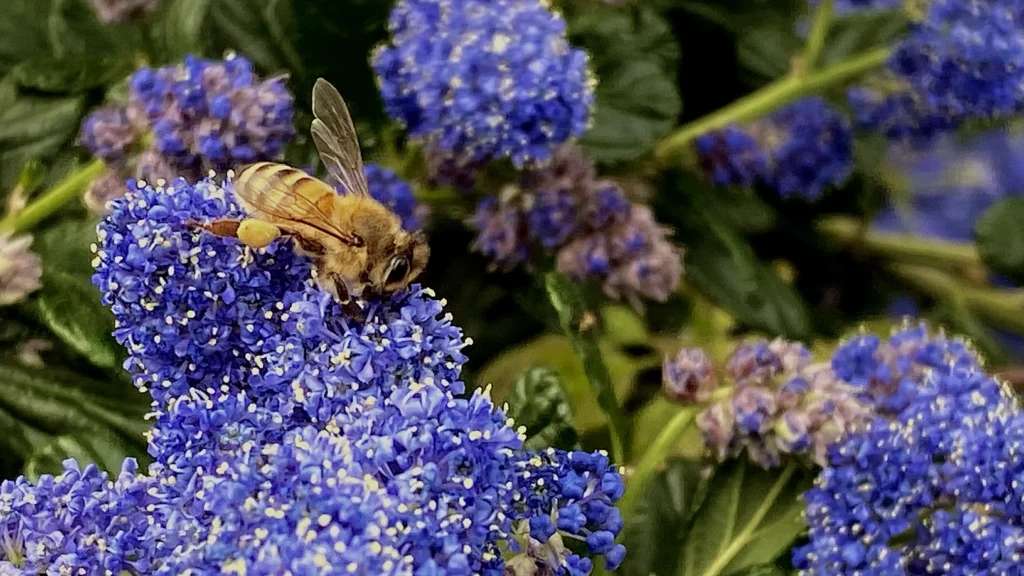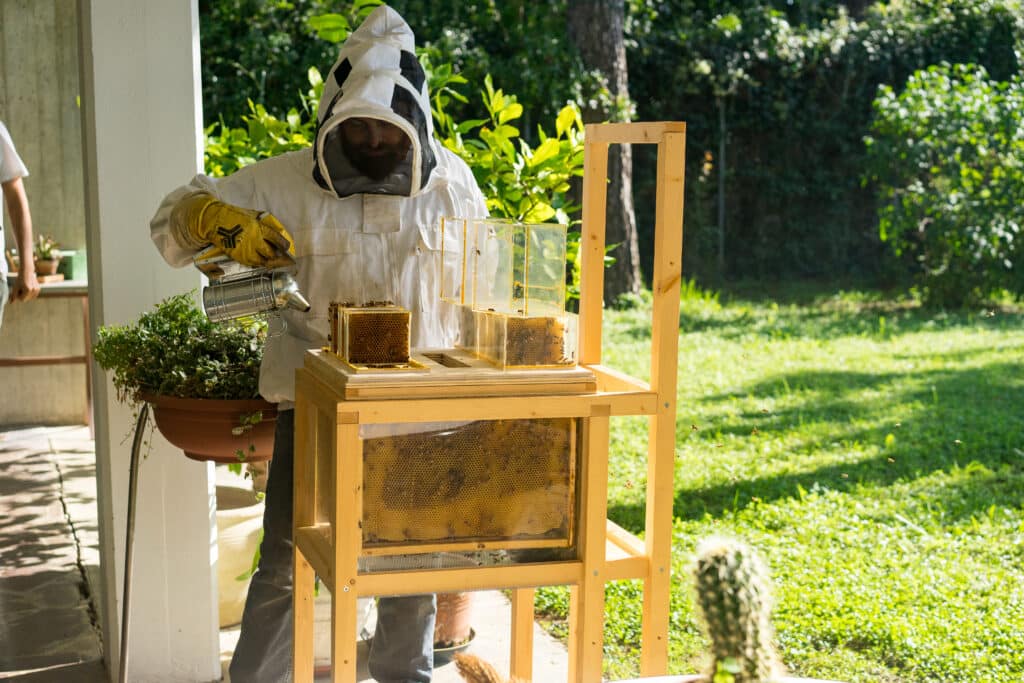Every May 20th, we celebrate World Bee Day. The aim of this international day is to raise awareness on the importance of pollinators in our ecosystem, their contribution to sustainable development and the threats they are facing. The Organization of the United Nation has chosen the date of 20 May because it coincides with the birthday of Anton Janša, a Slovenian painter who was passionate about bees and invented modern techniques of beekeeping. Pollination is a fundamental process for life on Earth.
Firstly, bees and the other pollinators contribute directly to our food security. Bringing pollen from one flower to another, they allow not only an abundant production of fruit, nuts and seeds, but also – and above all – a varied and quality production. Thanks to bees, we have all the raw materials that make our diet complete and nutritious. In a broader sense, pollination has a positive impact on the environment in general: it contributes to maintaining biodiversity and the vibrant ecosystems on which humanity depends.
Today, unfortunately, bees and pollinators are increasingly threatened by climate change and human activities. Bees, more than other pollinators, are extremely sensitive to changes in their environment. These are able to disrupt the rhythms of the hive, weaken families and cause heavy deaths. Pollution, urbanization, deforestation, monoculture-intensive agriculture and massive use of chemical pesticides are the main threats that are destroying biodiversity and the lives of pollinators.
World Bee Day is an opportunity to ask ourselves how we can contribute to their preservation.
Today we’ll suggest 5 good practices that everyone can take part in to protect pollinators and their habitats.
- Planting flowers friends of bees: more and more soil is today destined to urban areas and intensive crops. As a result, the floral resources available to bees and pollinators are way less than before. Thus, these insects invest a lot of energy in the search for pollen and nectar, which rarely bears its fruits. But we can change that! If you have a terrace or a garden you can choose to plant nutritious flowers, full of pollen and nectar so as to be – not surprisingly – the favorite of bees. Choosing a diverse set of plants would be the best, so that they would bloom at different times of the year and there would always be food available for pollinating friends.
- Avoid pesticides both in the garden and in the food we buy: bees are very sensitive to pesticides, herbicides and fungicides. They suffer from their presence on the flowers and their permanence in all the environments they visit; first of all, air. The best solution is to avoid using these chemicals in our gardens, and prefer their natural alternatives. Similarly, it is a good idea to choose organic food, coming from environmentally friendly agricultural practices. By doing so, we can finally build a sustainable and bee-friendly food supply chain!
- Install a house for wild bees: wild bees are solitary bees. Unlike honey bees, they do not live in beehives and provide for themselves. During the cold months, however, wild bees do not have a group of mates to join in order to warm each other, nor a sheltered place to spend the days of winter frosts. To help them, we can decide to welcome them in our garden, thanks to special shelters with small cavities (that seem to be the rooms of a hotel for bees!).Those little houses are designed to replicate the ideal nesting conditions for wild bees, which usually involve hollow plant stems or holes in the wood to lay eggs.In fact, the houses are made of wood, an isolating material perfect for these pollinators to defend themselves from atmospheric agents.
- Adopt a beehive: adopting a beehive encourages the repopulation of bees and supports the hard work of beekeepers. With #BeeTheChange, our adoption program, you will support a beekeeper in your area in taking care of his bees. In return, you will receive updates on how your beehive is, the fruit of the work of its bees – honey – and so much gratitude!
- Start doing urban beekeeping: in the past few years urban, intelligent and safe hives have been invented to house a beehive in the garden. This is the case of our B-BOX: the first innovative urban beehive, easy to manage and built respecting bees. B-BOX is designed to promote innovative, sustainable and responsible beekeeping. The idea is to rethink the city as a space where people and pollinators can live in harmony.
World Bee Day reminds us that for centuries humanity, plants and the environment have benefited from the work of bees. Today investing in their safeguard is up to us, without forgetting that their health is the health of the planet where we live. Let’s create a circular system of awareness on pollinators’ issues and protect them together. Join us and develop a project for the protection of bees and biodiversity with Beeing!

